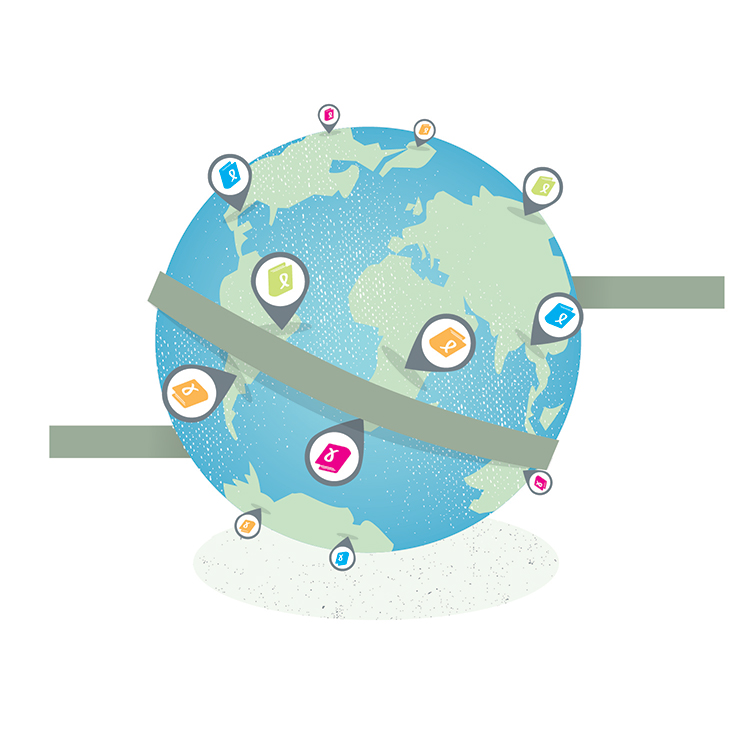Cancer is a story line in every part of the world. Depending on where a person lives and whether health care can be accessed easily or at all, the aspects of the story that are most salient—whether the diagnosis comes early or late, what treatment options are presented—will vary. Yet each individual tale will contribute to the overarching narrative of an ongoing attempt to topple a disease we still do not fully understand.

Photo courtesy of the Noun Project.
In 2003, Siddhartha Mukherjee set out to tell cancer’s story from the perspective of a doctor beginning his advanced training in medical oncology. That undertaking grew into a seven-year investigation of the history of cancer and his book, The Emperor of All Maladies: A biography of cancer, which won the 2011 Pulitzer Prize for general nonfiction. A multipart documentary produced by Emmy-winning filmmaker Ken Burns and based on the book is set to air on PBS in the spring of 2015. Now an assistant professor of medicine at Columbia University in New York City, Mukherjee conducts research on acute myeloid leukemia and treats patients with blood cancers at the university’s medical center. In April, he spoke at the opening plenary session of the American Association for Cancer Research (AACR) Annual Meeting 2013.
Q: Do you remember the first time you learned that cancer was basically a normal cell gone bad?
A: I remember being struck by it. I took a biology class in my first year at Stanford University, and I remember being introduced to the idea of cancer as an aberration of a normal cell. At that time, in 1989, this understanding of cancer was still sinking into the public imagination.
Q: After writing a biography of cancer, how would you describe its personality?
A: The fundamental thing that emerges in the book is that there is no single personality, and that cancer is not a single thing. … My goal was to try to tell an incredible science story that includes many people who contributed in diverse and complex ways. You could make the argument that it is one of the great human stories of our time.
Q: Do you think we can put a deadline on ending cancer?
A: Deadlines can energize people and be useful in that way. On the other hand, they can lead to a lot of disappointment when they are not met. … If you say I have a 10-year deadline to cure all cancers, that’s not a particularly interesting conversation. But if you say, I have a 10-year deadline to sequence all breast cancers to identify specific targets for prevention and treatment, that is a different kind of deadline.
Q: How do you talk about cancer with your patients?
A: I’m generally optimistic, but I also try to present a realistic picture about what is happening. The conversation doctors have with their patients is much more complicated than it was 10 years ago. … We now have a deeper understanding of what drives cancer, we know that there are multiple and various types of cancer, and we have more treatment options. One of the ironies of this is that in some ways, it brings us back to a time when medicine was more personal, because it means we need to treat each patient like an individual. People expect medicine to become more textbook … but it is becoming more deeply personal and even more invested in the exact human being treated.
Cancer Today magazine is free to cancer patients, survivors and caregivers who live in the U.S. Subscribe here to receive four issues per year.




